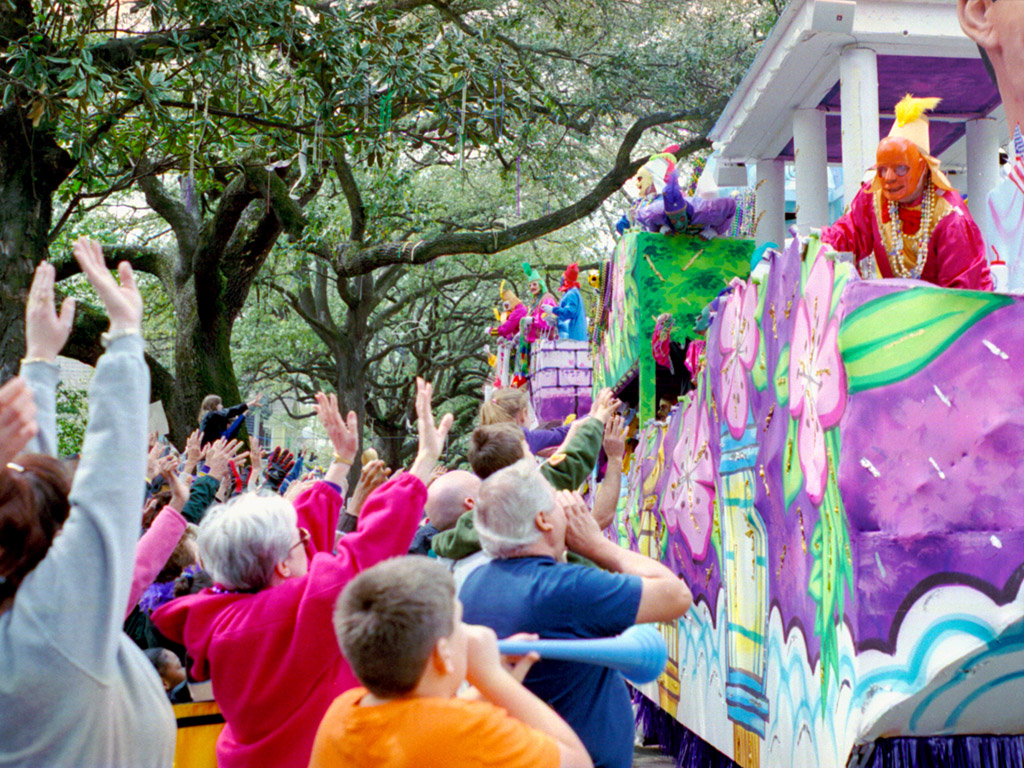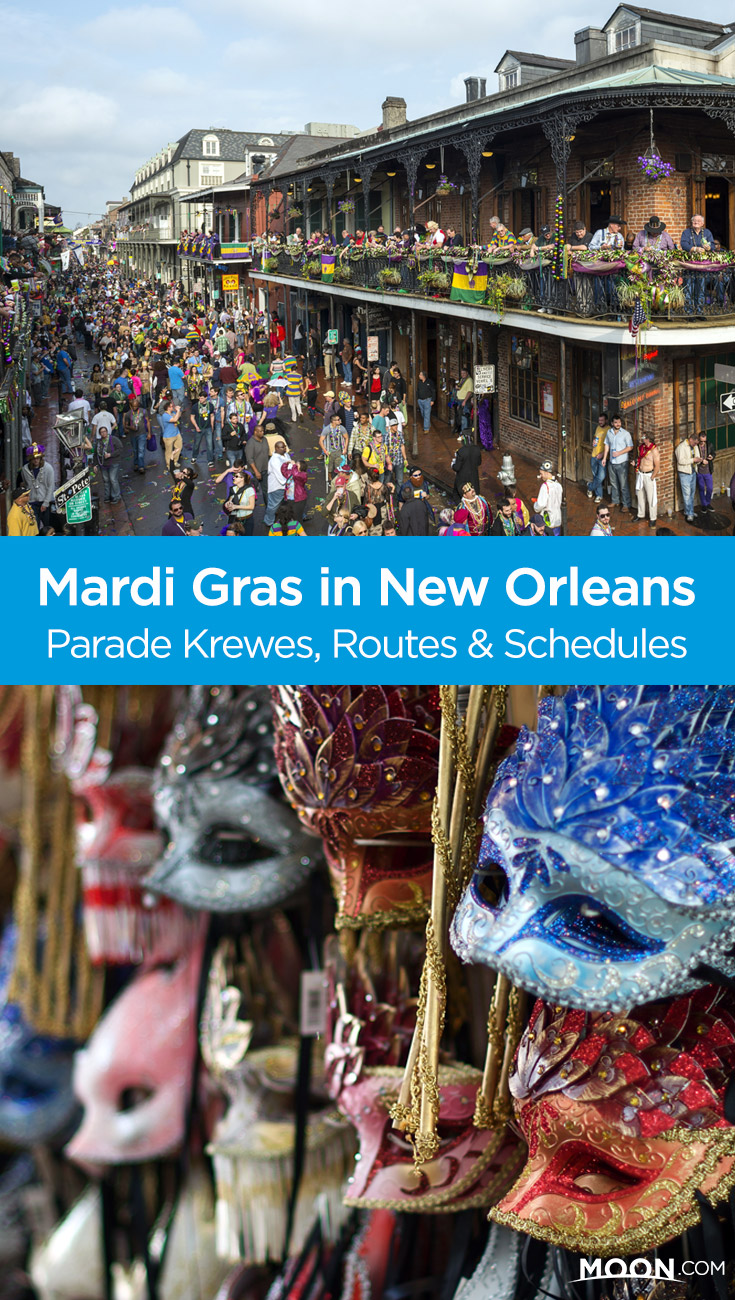Pick Your Parade: How to Do Mardi Gras in New Orleans
Mardi Gras is New Orleans at its peak: colorful, over-the-top, and full of vibrant history and tradition. It officially starts in February or early March, and lasts for 2–3 weeks prior to Lent (Epiphany to Ash Wednesday for those who celebrate, as “Fat Tuesday” began as a way to indulge before the fasting and solemnity of Lent). The festivities range from colorful street masks and costumes to balls: masquerade parties that occur at the end of a parade where the Mardi Gras royalty present themselves and party with their friends and the paying public.
But Mardi Gras’s most famous events are the parades themselves. Free and open to the public, the parades are sponsored by krewes, which feature colorful floats, marching bands, motorcycle squads, dancers, entertainers, and, sometimes, a royal court (the king, queen, maids, and dukes of a krewe). Spectators vie to catch throws—trinkets like beaded necklaces, stuffed animals, and commemorative doubloons—that are tossed from the various floats. For most krewes, each year brings a new theme, usually with a historical, mythical, or topical bent.
Only a few official Mardi Gras parades run through the French Quarter, including the raunchy Krewe du Vieux, the wine-themed Krewe of Cork, the dog-filled Krewe of Barkus, or the sci-fi-themed Intergalactic Krewe of Chewbacchus. Most of the other parades in and around the city (including Uptown, Mid-City, Metairie, and communities on the west bank and north shore) are surprisingly family-friendly. Some have special throws, such as the hand-decorated shoes offered by the Krewe of Muses, which usually rolls on the Thursday before Mardi Gras weekend. Parade routes are listed in the New Orleans Times-Picayune and online (nola.com, mardigras.com, mardigrasday.com, mardigrasneworleans.com).

New Orleans Superkrewe Parades
The biggest krewes, or superkrewes, are Endymion, Bacchus, Orpheus, Zulu, and Rex, each with their own traditions, style, and themes, so make sure not to miss your favorite!
Endymion
The Krewe of Endymion is the city’s largest parade, a superkrewe that features enormous floats, magnificent court costumes, and celebrity grand marshals.
When: 4:30pm on the Saturday prior to Mardi Gras
Where: Starts near City Park and travels down Canal Street and St. Charles Avenue, culminating with its ball in the Mercedes-Benz Superdome.
Bacchus
The Krewe of Bacchus features incredible floats and celebrity kings, from Danny Kaye to Will Ferrell. Signature floats include the Bacchasaurus, Bacchagator, and Baby Kong.
When: 5pm on the Sunday prior to Mardi Gras
Where: From Napoleon Avenue and Tchoupitoulas Street, it rolls through Uptown on Napoleon Avenue, along St. Charles Avenue, and down Canal Street, ending at the Ernest N. Morial Convention Center.
Orpheus
Co-founded by Harry Connick Jr., the Krewe of Orpheus has featured a slew of celebrity monarchs, from Stevie Wonder to Anne Rice.
When: 6pm on Lundi Gras
Where: From the corner of Napoleon Avenue and Tchoupitoulas Street, it rolls through Uptown on Napoleon Avenue, then along St. Charles Avenue, down Canal and Tchoupitoulas Streets, to the Orpheuscapade, a black-tie event at the convention center.
Zulu
The Zulu Social Aid & Pleasure Club presents one of the season’s most anticipated parades, during which spectators vie for painted coconuts, the krewe’s signature throw. Zulu also hosts the Lundi Gras Festival, a free music event on the day before Fat Tuesday.
When: 8am on Mardi Gras
Where: From the corner of Jackson and South Claiborne Avenues in Uptown, it travels along Jackson Avenue, continues north on St. Charles Avenue, follows Canal and Basin Streets, and ends at Orleans Avenue and Broad Street.
Rex
Since 1872, the king of the Krewe of Rex has reigned as the king of Mardi Gras. The parade features majestic floats, masked riders, and a royal court. Mardi Gras officially ends with the Rex Ball at the Sheraton New Orleans Hotel on Canal Street.
When: 10am on Mardi Gras
Where: The parade travels down Napoleon Avenue from the intersection with South Claiborne Avenue in Uptown, then along St. Charles Avenue and down Canal Street toward the Mississippi River.
Now that you’ve chosen your ideal parade, check out our tips for planning a trip to New Orleans for Mardi Gras.
Related Travel Guide
Pin For Later

